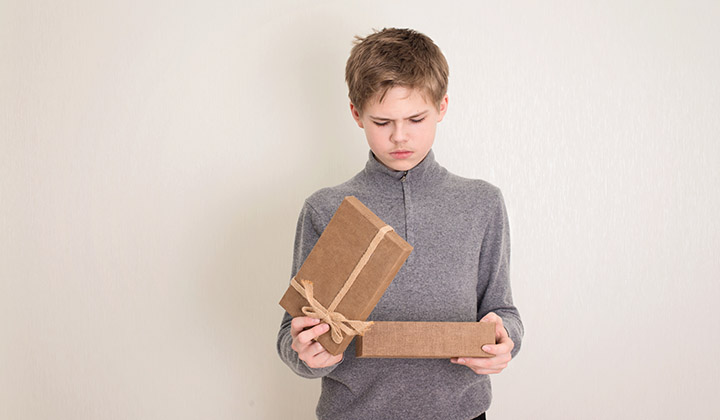
Webster Dictionary defines failure as “lack of success” or “falling short.” As well-known comedian, Ellen De Generes stated, “When you take risks you learn that there will be times when you succeed and there will be times when you fail, and both are equally important.” Invariably, on their path to adulthood, teens will encounter the race they cannot win or the math problem they cannot solve. There are ways that parents can help their teens benefit from those experiences of failure and perhaps, at a later time, to even come to view them as “gifts.”
Importantly, parents cannot attribute failure to a “motivational problem” when lack of success is due to circumstances beyond the teen’s control, such as skill deficits due to learning, emotional, or behavioral challenges. It is demoralizing to be repeatedly told, “If you only tried harder…” with the implication that you would have succeeded. If this is indeed true, the teen already knows this to be the case and pointing it out is comparable to saying “I told you so,” a message that is neither beneficial nor welcome. If failure is due to a skill deficit, telling one to “try harder” will be demoralizing and contribute to a sense of hopelessness. Instead, for such skill deficits, effort should be directed towards obtaining needed supports for one’s teen to progress.
More generally, since none of us are immune to failures, it is important to consider smaller, repeated experiences of losing as “inoculations.” Winning and losing are equally important to playing any game. Practice can improve one’s strategy and may enhance enjoyment of a game but there will still be times one will lose.
Tips to consider
- See if your son or daughter will invite you to play an electronic game they excel on; you can definitely model a good-natured approach to repeated losing, and with luck, demonstrate improvement with practice. Challenge your teen to join you and more skilled online Scrabble players so you can share the experience of being impressed by others’ skills and perhaps work to learn some strategies (yes, some of those words do exist in Scrabble dictionaries).
- Model good sportsmanship and point out examples of graciousness after a loss. Whether watching sporting events or competitions such as “The Great British Bakeoff,” praise the efforts of the contestants. Also, point out circumstances beyond the control of an individual that impacts performance or the ability to “win,” such as the quality of snow on the ski slope, the wind during a golf tournament, and judges’ subjective preferences in the Oscars Academy Awards.
- Share your own experiences of failure and how you benefitted as a result of moving on or working harder. Also, share how failures may have shaped the decisions you might now regret (quitting cross country because of never placing in a meet or stopping piano because it was frustrating to practice).
- Responses to your teen immediately after a loss can shape their perceptions of the experience. Offer immediate sympathy and acknowledge your teen’s sense of disappointment or frustration. This is not the time to criticize their efforts or lack of preparation. Instead, help them with perspective taking. If they are grieving over a particularly big loss, acknowledge that it may take time for them to “move on” or get back on their game.
- Try to ensure they are around supportive family members or friends. Help them redirect their energies in a positive direction, such as by accompanying younger siblings to one of their activities or taking something to a grandparent. Remind them of how much you love them and how much joy they bring you and others by simply being who they are.
